As an American living abroad, I see firsthand how work cultures vary widely from country to country. In Portugal, for example, work is nothing like it is in the U.S.—employers are legally prohibited from contacting employees outside of working hours (imagine that in New York). And the relatively recent end of dictatorship still leaves traces in how creativity is encouraged—or not encouraged—at work. I’ll share more on that in a future post.
But lately I’ve been wondering: what is it like to work in other countries around the world, and what can we learn from their cultures? Since I travel constantly and am insatiably curious, I’ve decided to start asking people in the places I go what their work life is really like—and then sharing the most interesting parts with you. Up first is the Seychelles, the smallest country in Africa!
A First Glimpse: Arrival in Seychelles
Last week I arrived on a tiny island floating in the middle of the Indian Ocean: the Seychelles (or perhaps just Seychelles without the “the,” depending on who you ask). After being dropped off at a ferry jetty, taken across the water to a private island, whisked around on a golf cart, and deposited into a garden-view villa, I made my way to the beach. The white sand was soft and unspoiled, the turquoise water sparkling and clear, and the arching trees provided generous shade. My friend and I plopped our things on the nearest lounge chairs and stayed there for hours. It felt like heaven on arrival.
When I Googled more about the country, I found something striking: there were no original inhabitants. In the 1700s, after European colonizers arrived, they brought with them 15 settlers—along with enslaved Africans from Madagascar, Mauritius, and Mozambique. The French ruled until the early 1800s, then Britain took over. Seychelles gained full independence in 1976. Today, Creole is the national language, and both English and French are also official. It’s a strange feeling to be in a place with no indigenous people—it definitely affects the cultural identity.
A Patchwork of Languages and Lives
At the hotel, it was clear that the Seychelles draws an international crowd. I overheard Russian, Polish, French, Spanish, Italian, Japanese, and what I believe was Bulgarian. The employees were just as global: I met people from India, Nepal, and countries across the Middle East.
One evening, while having dinner on the patio, I asked our server how long he had been working there. He told me he was from a small village in India. Encouraged by his parents to pursue hospitality in hopes of building a better life, he started working in hotels young. He’d been in the Seychelles for seven months, having come from a luxury hotel in the Middle East—I believe it was in Qatar.
When I asked what it was like to work in the Seychelles, it quickly became obvious that hospitality rules everything. Tourism is the main industry. Most people work in hospitality, and the luxury resorts want staff who can speak multiple languages and bring experience from other high-end properties. As a result, employees often come from all over and speak English to one another because it’s their only shared language.
This, he explained, heavily shapes the work culture. Communication breakdowns are common, not because people are rude or careless, but because they are navigating different cultural norms and levels of fluency. “If someone writes something that seems offensive in an email,” he said, “it’s probably not offensive in their culture—or they just don’t know how to express it properly in English.” That stuck with me. What he’s talking about is empathy, and I’ve noticed that in places with more homogenous populations—Portugal being one example—that kind of cross-cultural empathy isn’t always automatic.
Connection as Currency
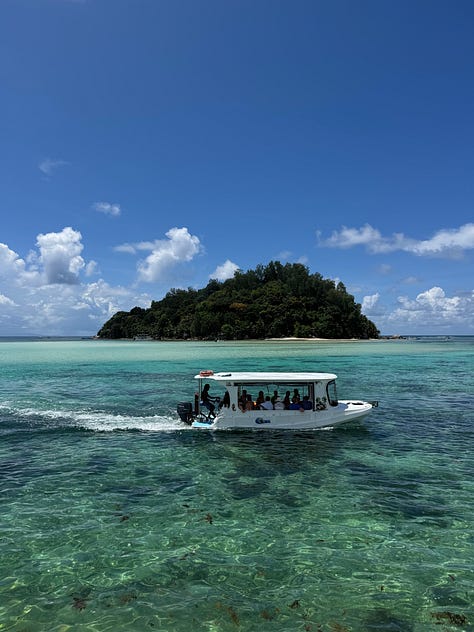
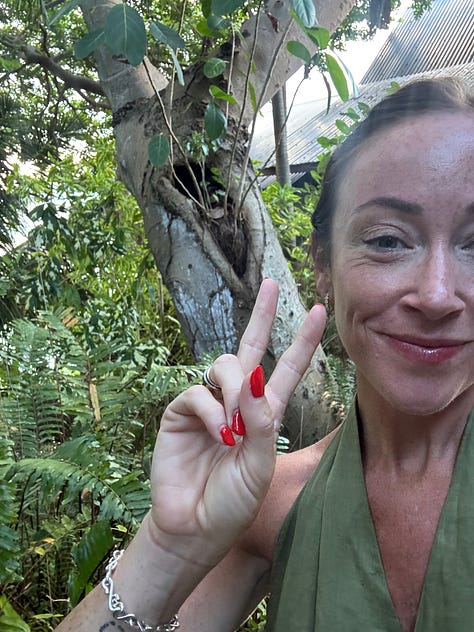
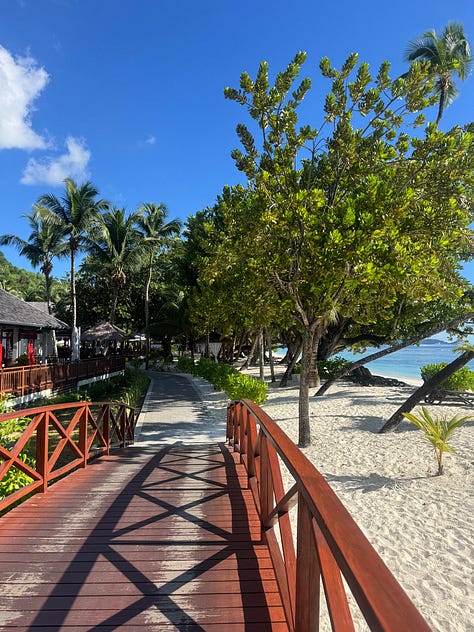
He also shared a contrast that I found fascinating: in the Middle East, hotels can be incredibly luxurious but tend to be quiet. Guests generally keep to themselves. They want to eat, sleep, and maybe use the amenities but they’re not there to strike up conversation. In the Seychelles, it’s the opposite. Our server kept in touch with families who visited. He had invited several guests to come to his village in India. It was clear that interactions here were infused with a sense of warmth and ease.
Interestingly, despite the laid-back island vibe, everything ran on time. Ferries, dinner reservations, spa appointments—all of it was prompt and efficient. I suspect that has something to do with the standards of luxury hospitality. Tardiness isn’t really an option when you're serving guests who are sometimes paying thousands of dollars per night (don’t worry, that’s not how much I spent, but many people do)!
A Work Culture of Functionality and Warmth
Over the course of the week, we stayed at two different properties on two different islands. I spoke with servers, bartenders, boat drivers, and taxi drivers, and observed the way things operated. A few takeaways became clear:
Hospitality-first isn’t just an industry model, it’s a mindset.
The cultural diversity among staff fosters a daily search for common ground.
Punctuality and functionality aren’t sacrificed for relaxation, they coexist.
In other conversations, I learned that a typical workday runs from 8am to 4pm. The minimum wage is quite low—around $500 per month—and while the government has started enforcing work contracts more strictly, the structure still leans toward informality. One person pointed out that tourists sometimes treat the island with more reverence than some of the locals do. That surprised me at first, but it makes sense: in parts of Europe, tourism is often resented for driving up prices and crowding neighborhoods. But in Seychelles, tourists are seen as essential to the economy, so the attitude is more open and welcoming.
What We Can Learn
If there’s one thing I’d encourage all of us to take from this small but complex place, it’s that making an effort to understand others—especially across language and cultural lines—can have a transformative effect. It softens judgment, it improves communication, and it opens doors more easily.
Whether it’s remembering that a strangely worded email might just be an honest mistake, or pausing to learn someone’s story before making assumptions, hospitality in Seychelles offers something deeper than service—it offers a way of relating.
If you ever find yourself in Seychelles, I highly recommend JA Enchanted Island. According to my Oura ring, it’s the least stressed I’ve ever been. I read a stack of entertaining books, got a head massage I still think about daily, fed some very large tortoises, snorkeled among some of the most beautiful tropical fish I’ve seen (rivaled only by my drift-snorkeling in French Polynesia), and had time to reflect on where I want my life to go over the next few years. Not bad for seven days.

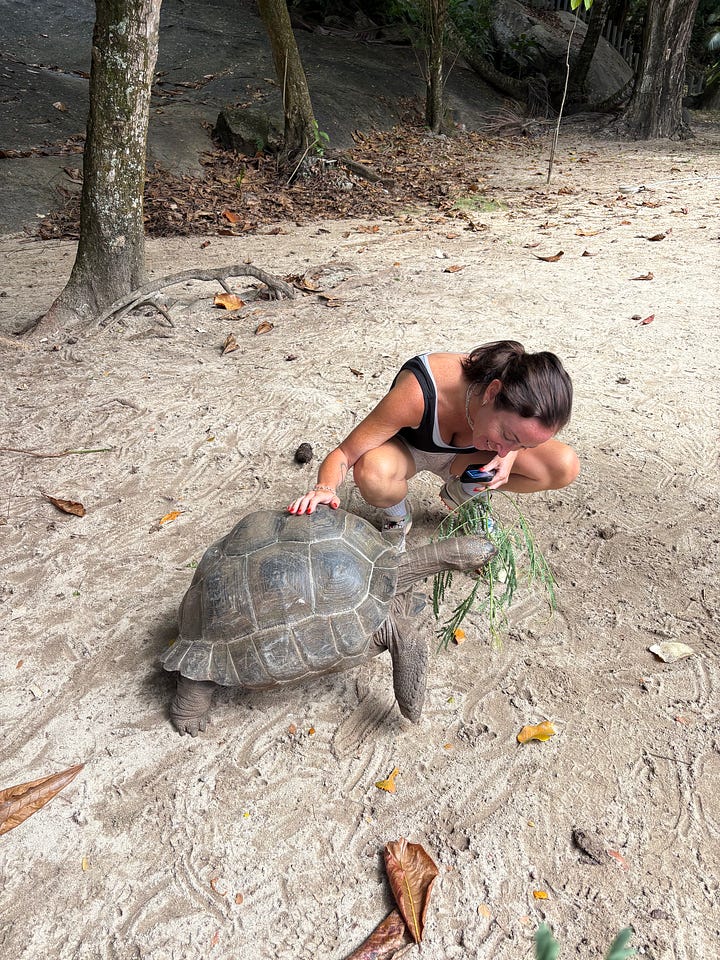
Next stop: Texas. I have a feeling the work culture there will feel just a tad different!
Have you noticed any surprising or memorable work cultures—abroad or even in your own city?
I’d love to hear about them.




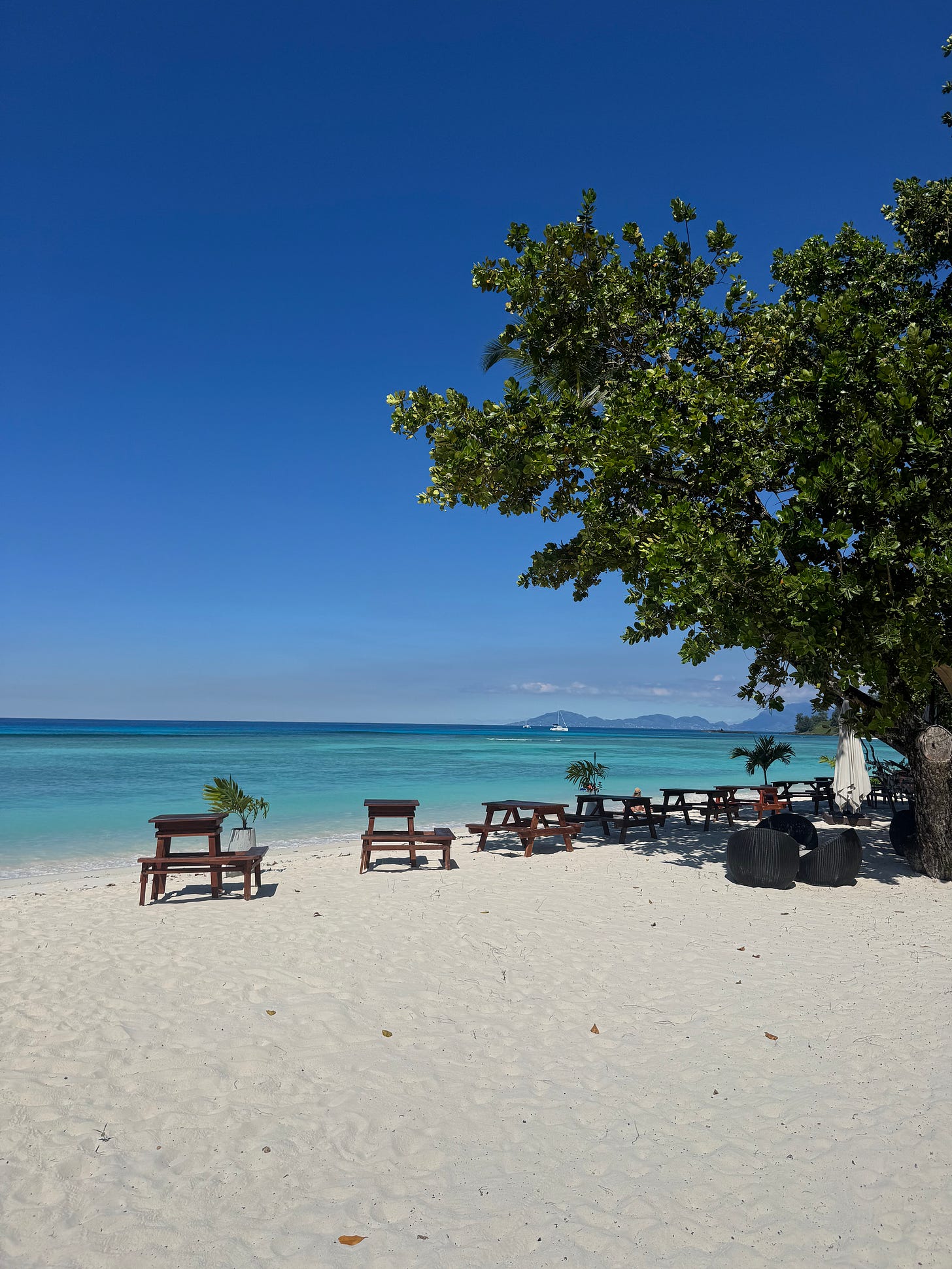
Such a cool interpretation. Travel is king!!